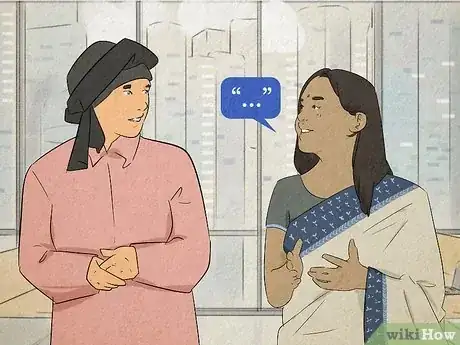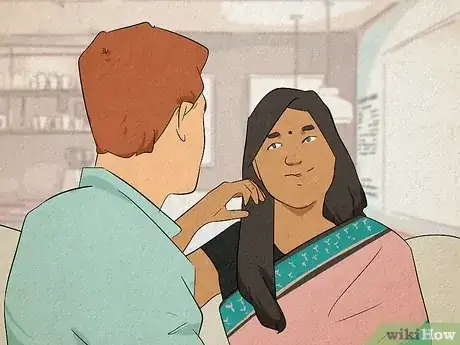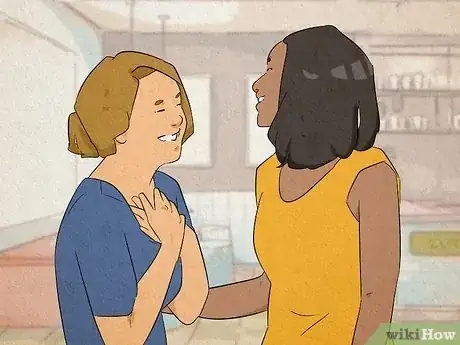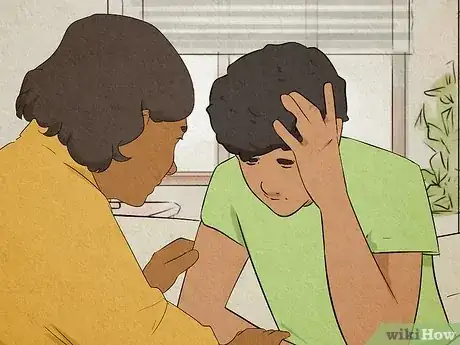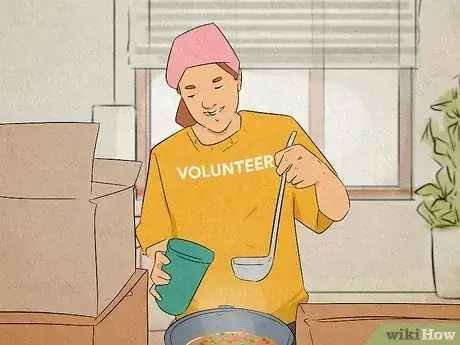This article was co-authored by Sandra Possing and by wikiHow staff writer, Glenn Carreau. Sandra Possing is a life coach, speaker, and entrepreneur based in the San Francisco Bay Area. Sandra specializes in one-on-one coaching with a focus on mindset and leadership transformation. Sandra received her coaching training from The Coaches Training Institute and has seven years of life coaching experience. She holds a BA in Anthropology from the University of California, Los Angeles.
There are 13 references cited in this article, which can be found at the bottom of the page.
This article has been viewed 247,184 times.
Do you want to gain a better understanding of the people around you? Social awareness is your ability to read and accurately interpret social situations. It contributes to your overall emotional intelligence, making it easier to build strong bonds with friends, family, coworkers, and loved ones. Keep reading for a comprehensive list of ways to develop your social awareness!
Steps
Expert Q&A
-
QuestionHow can I improve my social awareness?
 Amy WongAmy Eliza Wong is a Leadership and Transformational Coach and the Founder of Always on Purpose, a private practice for individuals and executives looking for help in increasing personal well-being and success and in transforming work cultures, developing leaders, and improving retention. With over 20 years of experience, Amy coaches one-on-one and conducts workshops and keynotes for businesses, medical practices, non-profits, and universities. Based in the San Francisco Bay Area, Amy is a regular instructor at Stanford Continuing Studies, holds an MA in Transpersonal Psychology from Sofia University, a certification in Transformational Life Coaching from Sofia University, and a certification in Conversational Intelligence from CreatingWE Institute.
Amy WongAmy Eliza Wong is a Leadership and Transformational Coach and the Founder of Always on Purpose, a private practice for individuals and executives looking for help in increasing personal well-being and success and in transforming work cultures, developing leaders, and improving retention. With over 20 years of experience, Amy coaches one-on-one and conducts workshops and keynotes for businesses, medical practices, non-profits, and universities. Based in the San Francisco Bay Area, Amy is a regular instructor at Stanford Continuing Studies, holds an MA in Transpersonal Psychology from Sofia University, a certification in Transformational Life Coaching from Sofia University, and a certification in Conversational Intelligence from CreatingWE Institute.
Leadership & Transformational Coach Taking time to meditate every day can help you understand your feelings better.
Taking time to meditate every day can help you understand your feelings better. -
QuestionHow can I track how I'm feeling during the day?
 Amy WongAmy Eliza Wong is a Leadership and Transformational Coach and the Founder of Always on Purpose, a private practice for individuals and executives looking for help in increasing personal well-being and success and in transforming work cultures, developing leaders, and improving retention. With over 20 years of experience, Amy coaches one-on-one and conducts workshops and keynotes for businesses, medical practices, non-profits, and universities. Based in the San Francisco Bay Area, Amy is a regular instructor at Stanford Continuing Studies, holds an MA in Transpersonal Psychology from Sofia University, a certification in Transformational Life Coaching from Sofia University, and a certification in Conversational Intelligence from CreatingWE Institute.
Amy WongAmy Eliza Wong is a Leadership and Transformational Coach and the Founder of Always on Purpose, a private practice for individuals and executives looking for help in increasing personal well-being and success and in transforming work cultures, developing leaders, and improving retention. With over 20 years of experience, Amy coaches one-on-one and conducts workshops and keynotes for businesses, medical practices, non-profits, and universities. Based in the San Francisco Bay Area, Amy is a regular instructor at Stanford Continuing Studies, holds an MA in Transpersonal Psychology from Sofia University, a certification in Transformational Life Coaching from Sofia University, and a certification in Conversational Intelligence from CreatingWE Institute.
Leadership & Transformational Coach Set random timers throughout your day and check how you're feeling whenever they go off.
Set random timers throughout your day and check how you're feeling whenever they go off.
References
- ↑ https://www.bhf.org.uk/informationsupport/heart-matters-magazine/wellbeing/how-to-talk-about-health-problems/active-listening
- ↑ https://www.bhf.org.uk/informationsupport/heart-matters-magazine/wellbeing/how-to-talk-about-health-problems/active-listening
- ↑ https://fremont.edu/how-to-read-body-language-revealing-the-secrets-behind-common-nonverbal-cues/
- ↑ https://www.canr.msu.edu/news/eye_contact_an_introduction_to_its_role_in_communication
- ↑ https://westsidetoastmasters.com/resources/book_of_body_language/chap4.html
- ↑ https://www.scienceofpeople.com/feet-body-language/
- ↑ https://www.scienceofpeople.com/what-to-do-with-hands/
- ↑ https://www.scienceofpeople.com/mirroring/
- ↑ https://www.understood.org/en/articles/4-types-of-social-cues
- ↑ https://www.helpguide.org/articles/relationships-communication/empathy.htm
- ↑ https://www.helpguide.org/articles/mental-health/emotional-intelligence-eq.htm
- ↑ https://www.helpguide.org/articles/relationships-communication/empathy.htm
- ↑ https://www.helpguide.org/articles/mental-health/gratitude.htm
- ↑ https://www.helpguide.org/articles/mental-health/emotional-intelligence-eq.htm
- ↑ https://hbr.org/2010/04/youve-made-a-mistake-now-what
- ↑ https://curriculum.gov.bc.ca/competencies/personal-and-social/social-awareness-and-responsibility
- ↑ https://curriculum.gov.bc.ca/competencies/personal-and-social/social-awareness-and-responsibility
About This Article
Social awareness can help you connect with other people and avoid awkward moments. One way to develop more social awareness is to pay attention to people's body language and facial expressions to pick up on what they're feeling. People usually show obvious signs of how they're feeling, like crossing their arms if they're upset or uncomfortable or making a lot of eye contact if they're interested in what you're saying. Similarly, someone avoiding eye contact might not want to talk right now. When you’re having a conversation, focus on actively listening to the other person, rather than what you’re going to say next. This will help you better understand what they’re feeling and thinking. To learn how to find common interests with other people, read on!

